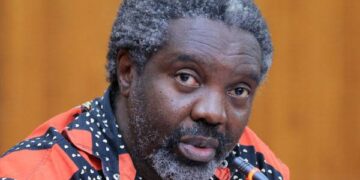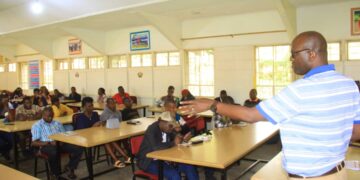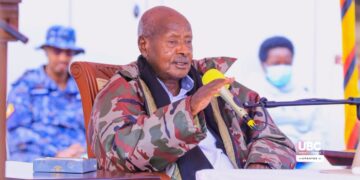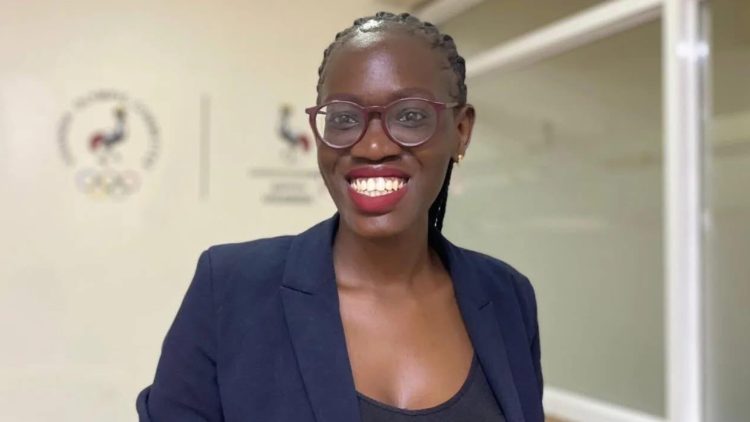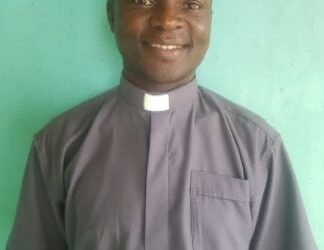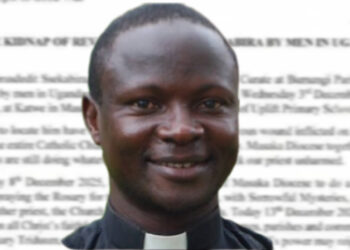OPINION
As we commemorate the International Day of Education 2025 under the theme “Investing in People, Prioritizing Education,” it is crucial to reflect on education’s role in achieving Sustainable Development Goal 4 (SDG 4): Quality Education. SDG 4 emphasizes inclusive, equitable, and lifelong learning opportunities for all, highlighting that education is not confined to classrooms but begins at birth and continues long after formal schooling.

From the moment a child is born, they begin to learn. The early years of life are critical for cognitive, emotional, and social development. Simple actions, such as parents engaging in conversations with their infants, playing educational games, or introducing books, lay the foundation for lifelong learning. Early childhood education (ECE) programs are a vital part of SDG 4, focusing on ensuring that children enter primary school equipped with basic skills.
In Uganda, however, access to quality ECE remains a challenge for many children, particularly in rural areas. Investing in this stage of education is not just about creating opportunities for children to learn but also empowering parents and caregivers with the tools and knowledge to nurture their children’s growth.
Education does not end when formal schooling begins, or even when it concludes. Lifelong learning encompasses formal, informal, and non-formal modes of education. Skills such as financial literacy, entrepreneurship, farming, and digital literacy are essential for communities to thrive. Vocational training programs, apprenticeships, and community workshops contribute significantly to improving livelihoods and reducing unemployment, especially among Uganda’s youth.
For instance, young people who graduate without job opportunities often benefit immensely from vocational skills training programs. These programs help them transition from education to employment, aligning with SDG 4’s target to promote skills for employment, decent jobs, and entrepreneurship.

The world is rapidly evolving, and post-graduation learning is no longer a luxury—it is a necessity. In Uganda, as elsewhere, fields such as technology, healthcare, and education require professionals to continuously upgrade their skills. Online courses, workshops, and certifications offer avenues for professionals to stay competitive and innovative.
Moreover, education also extends to learning how to engage with society—understanding governance, personal branding, health systems, and cultural heritage. For Uganda to meet its development goals, its citizens must embrace lifelong learning as a way of adapting to change and contributing meaningfully to the nation’s growth.
To achieve SDG 4, we must address systemic barriers to education at all levels. Some of these challenges include: limited access to early childhood education in rural areas, high dropout rates, especially among girls, due to early marriages or financial constraints, ack of awareness about the importance of continuous personal development, informal and vocational education & insufficient resources to support adult education and skill development programs.

Prioritizing education means ensuring that every Ugandan—whether a child, youth, or adult—has access to opportunities to learn and grow. It requires collective investment from governments, private sectors, and communities to address gaps in the education system and promote lifelong learning.
When we view education as a lifelong journey, we recognize its power to transform not just individuals but entire societies. By investing in people through education, Uganda can build a future where every citizen has the tools to succeed and contribute to national and global development.
Let us commit to making education accessible in all its forms, for all people, at every stage of life. This is the essence of SDG 4 and the promise of a better, more equitable Uganda.
By Lynn Edinance Olepus, The writer is a lawyer; youth advocate and human rights advocate















